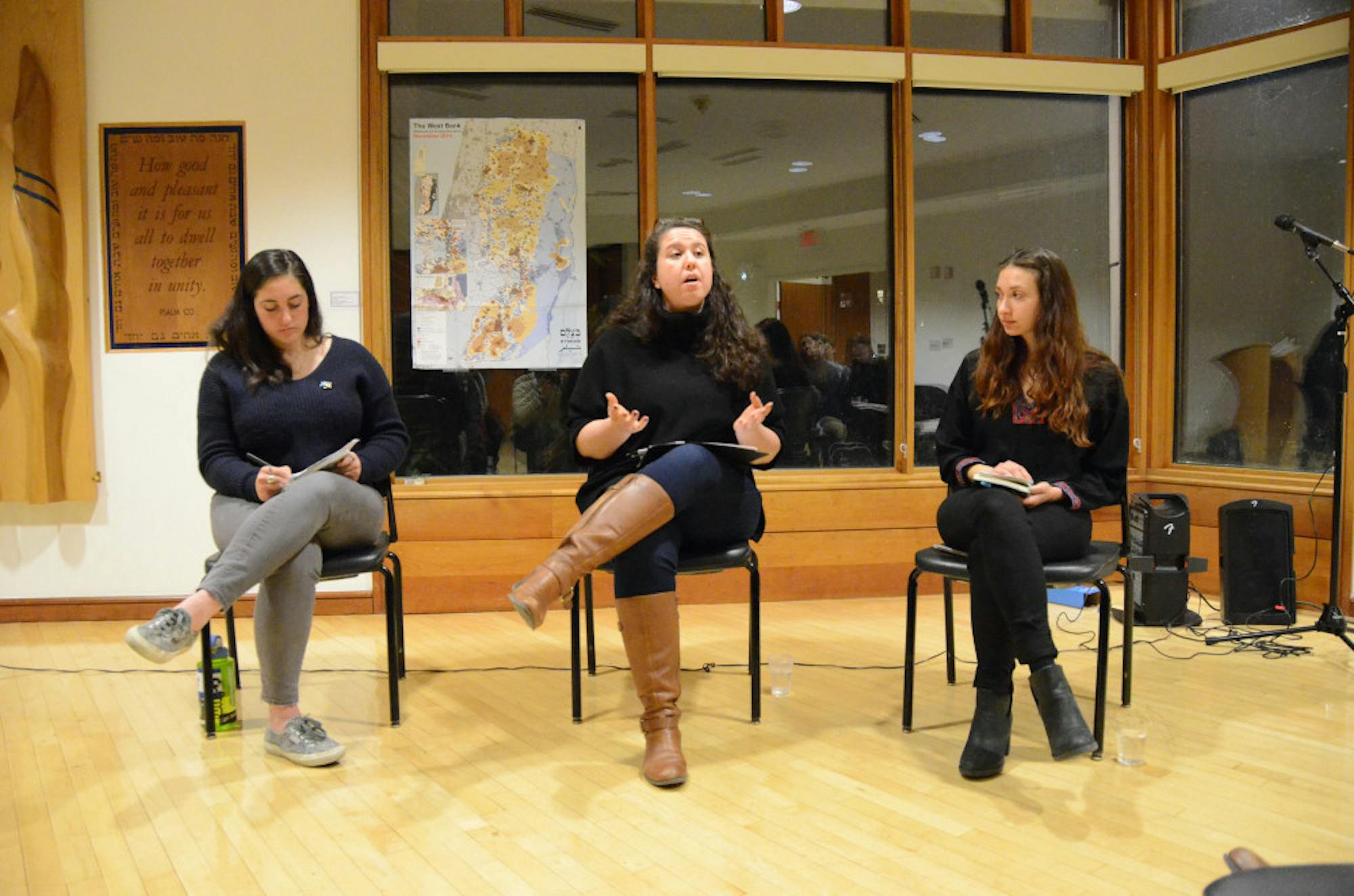Chelsey Berlin, the director of human rights organization B'Tselem USA, discussed human rights conditions in the West Bank and the consequences of the Israeli occupation in Palestine as part of an event hosted last night in the Granoff Family Hillel Center by J Street U Tufts.
B'Tselem, established in 1989, is the Israeli Information Center for Human Rights in the Occupied Territories. The organization collects research about human rights violations in the occupied territories and aims to raise awareness about these issues among the Israeli public,according to its website.
J Street U Tufts Co-Chair Andrew Goldblatt gave introductory remarks. He emphasized the importance of having open dialogues about these issues instead of avoiding them, which only worsens the situation.
“I felt failed by my community ... I felt betrayed because people didn’t want to show up and have the conversation, let alone do something about the issues that were going on," Goldblatt said.
The discussion was led by two student panelists, both members of J Street U Tufts, and audience members later asked questions. The student panelists discussed the need to understand both Palestinian and Israeli narratives in order to have productive conversations on issues in the region.
Berlin answered questions on a wide range of issues concerning the Israeli-Palestinian conflict and the effect the occupation has on the Palestinian quality of life. She spoke about her time living in Nablus, located in the West Bank, explaining that some Palestinians felt misunderstood and that their stories were not being heard by the rest of the world.
“That conversation went along the lines of, when you get back to America, please tell the Americans that we are not all terrorists,” Berlin said.
Berlin explained that B’Tselem is composed of representatives from many different backgrounds and perspectives on the conflict, particularly Palestinians and Israelis. The organization looks at what takes place in the occupied territories, gathering information including raw data, videos of wrongdoings committed in the territories and personal testimonies. B’Tselem also conducts longer term research projects about human rights in the West Bank.
“I think it’s really important to bring our whole selves to this conversation,” Berlin said.
To address why it is difficult for many Jewish organizations to talk about the occupation, Berlin said that the word 'occupation' itself can cause tensions. She then explained the specifics of why settlements in the West Bank are considered illegal under international law.
“The laws were created so that the people living in that territory would be protected while that territory perhaps changed sovereignties ... while the parties determine what to do with this territory that has been taken, there needs to be a temporary benevolent custodian of that area,” Berlin said.
Berlin also discussed the implications of the occupation for individuals living in the occupied territories. Berlin explained that different categories of land in the occupied territories have different degrees of Palestinian autonomy.
According to Berlin, 60 percent of the West Bank is under full Israeli control, although there are still Palestinians living in these areas. Berlin cited restrictions on Palestinian travel and available living and building space for Palestinians as a few of the conditions that make life difficult for Palestinian residents in the West Bank. She added that little government action is being taken to improve these living conditions in the near future.
“In June, it will have been 50 years [since the beginning of the West Bank's occupation]. I want to offer that perhaps at some point between zero and 50, we’re no longer talking about a temporary situation," Berlin said. "We might question whether or not this has been benevolent for this entire time."
Berlin emphasized that the upcoming 50th anniversary of the occupation should call attention to the fact that people need to have more conversations about the conflict in order to take action.
“This is a date on the calendar that we don’t want to be insignificant,” Berlin said.
In terms of changing the Israeli public’s view of the occupation, Berlin advocated for open discussions and presentations of facts about the occupation and said that if people could access information about what is being done in the name of their country, they would be motivated to protect everyone living under their country’s governance.
Berlin also emphasized that it is not just a conversation that should take place between Israelis and Palestinians, but that it is the world’s moral responsibility to guarantee equal rights.
“Human rights should be an international conversation,” Berlin said.
Chelsey Berlin speaks about human rights in the West Bank

Chelsey Berlin, Director of B'Tselem USA and human rights activist, gives a talk during '50 Years of Occupation: Human Rights in the West Bank' in Tufts Hillel on Mar 6.





